#the american civil war was about slavery
Text
A resource for those of you who want to offer a solid retort to the continued anti-CRT, "states rights", the civil war "wasn't about slavery" crowd (all inter-related, ideological positions whose empirical foundation is bullshit, in the Harry G. Frankfurt sense of the term "bullshit.")
#the american civil war was about slavery#slavery is what caused the Civil War#I don't know why we have to keep saying this shit#louder for the people in the back
20 notes
·
View notes
Note
I saw a post about racist Jasper stans bitching bc they’re not able to enjoy shitty J*sper content bc of tags or whatever lol and someone said: “What is there even to enjoy?”. I had to laugh and I thought if you bc it’s so true. Most Jasper content isn’t even that enjoyable. It’s mostly the same boring white-supremacist garbage that I’ve seen before; even the jalice stuff is played out.
The only J*sper content I enjoy is content where he is worshipping Maria, thinking about Maria, talking about Maria, loving Maria, doing anything for Maria tbh. Is that bad? XD I owe it to you and your writing! idk something about a 19/20 year old dumbass confederate falling madly in love with a native brown woman and literally seeing her as a god-like figure as she’s basically handing him his karma for his racist crimes sends me. Ppl act like he was this awesome person before Maria and that it’s her fault he’s gutter trash now with the C*llens but he was gutter trash BEFORE he met Maria. She honestly made him so much better, stronger and MUCH more interesting. She literally created the man these stans thirst over so much. She is the blueprint.
the thing anti-María Jalice stans don't get is, without María, you do not have Jasper. for everything Jasper is, María is the catalyst ❤️
canonically, all we know about Jasper Hale pre-change is 1) he was born in Texas, 2) faked his age to join the Confederate Army* where he became the youngest major in Texas, & 3) was persuasive
beyond that, María made Jasper into the man the fandom adores. you like that he's an empath? guess whose venom made him one. you like that he's a warmonger? guess whose war he fought for. you like that he has a troubled past? guess who put the trouble in it. you like that he's "soft" "empath" "baby" (tbh i don't see it but ok)? guess who made him want to be that way. you like that he's submissive to Alice? guess who broke him in first.
you want Jasper with Alice but wish the María era didn't exist? lol just say you want the hot faceless Confederate to get with the psychic Mississippian & go
as for me, MARÍA ALL DAY BAYBEEEEE
here we have a woman who has suffered all her life at the hands of colonizers. born "1800s or earlier," we can suppose she has firsthand experience with colonization (at least Napoleon's invasion) & lived through Mexico's War of Independence. i.e., she has a deep familiarity with what it means to have your way of life ripped from you by invaders. PLUS she was a victim of Benito's army in the Southern Vampire Wars; her entire coven including her mate was killed.
& despite her losses, she rallied to take back her land & drive out her oppressors. baseline, she is a strong, cunning, powerful indigenous woman with a deep love for her community and her people. HOT
now let's look at Jasper, a bright leader in the Civil War who suffered defeat at the hands of the Union army. yes, María changed him. but did she force him to stay? to go to war? the newborn vamp with the strength & speed to overcome a "grown" vamp chose not to do so. the empath with the power to make anyone disregard him chose not to use it. some say María was "abusive" & "manipulative," but few acknowledge that Jasper had a choice.
why didn't Jasper leave? because he's submissive to anyone more powerful than him. because he was a loser. because the Southern Vampire Wars gave him a second chance at victory. because "empath" or no, he wanted to play war & win.
that's what's compelling about Jasper/María. as wrong as Jasper was for fighting for the Confederacy, he believed he was fighting for the same thing as she. he saw his way of life destroyed by "invaders" & fought back. it's a sick & twisted parallel between oppressor & oppressed that becomes subverted as their relationship goes on... & one that can heal them both.
María's experience with colonizers gives her a visceral picture of what it means to be oppressed... but her relationship with Jasper gives her the victory & emotional reflection she needs to move on. Jasper's military training gives him the hunger & knowledge for war... but his "curse" of empathy provides him with the tools he needs to recognize & address the horrors of his problematic past & move on.
tbh, i find Jasper & María are perfectly suited for a delicious character-driven narrative. Maria's story is that of a traumatized indigenous woman on a path from colonization to decolonization, & the sacrifices & destruction she endures realize that vision. Jasper's story is that of a troubled man on the path from self-hate to self-love, & what it means to undo the societal teachings/traumas & forge a life of empathy & forgiveness.
& that is something Alice alone can never give Jasper.
tl;dr all hail Queen María
#*non-americans: the Civil War (1861-1865) was a battle between Northern (Union) & Southern (Confederate) states...#...over whether to permit slavery in new U.S. territories.#maría my beloved#anon i'm glad you like my María writings (when i used to post them)!#anon thank you so much for giving me this ask and allowing me to just rave about María you are so wonderful <3333 thank you come again#twilight#twilight renaissance#the twilight saga#jasper hale#jasria#jasría#asks#(disclaimer: i don't hate jasper. i do not think of him. no hate to jalice stans either. lichrally i do not care. i simply love maría)#god i love her so much#most underrated character of the whole saga tbh#honestly if i didn't have this rewrite going on i would DEFINITELY LOVE to take a crack at writing The Jasría Story#i just see this gorgeous gothic horrific bloody strangely uplifting & bittersweet vampire novel#it's got death and sex and horror and blood and everything Twilight should've been but Worse (and Better)#ok fuck it fuck it FUCK IT I'M DOING IT. I'M OPENING A DOC. I'M TAKING NOTES. I'VE GOT TO WRITE THIS. SHE DESERVES IT#the-most-pathetic-edge wya bestie#let's change the renaissance. For Her#su-angelvicioso#i hope you see this & i hope you're doing well & if i write this series it's for you & i will get this story to you somehow
30 notes
·
View notes
Text
An interesting piece of trivia in Donald R. Hickey's book The War of 1812: A Forgotten Conflict: the last US veteran died in 1905, nearly a century after the conflict ended, and the last US pensioner (a daughter of a War of 1812 veteran) died in 1946. A child of a War of 1812 veteran was alive after the Second World War! It reminded me of the time a granddaughter of an American Revolutionary War veteran appeared on a 1961 television programme.
The last surviving child of an American Civil War veteran died in 2020, aged 90—child, not grandchild. I looked up the last living child of an enslaved Black American, because I know one was alive into the 2020s—Daniel Smith died only last month, in October 2022!
There is just something about having these seemingly distant eras so closely connected to living memory that feels eerie. Considering that we know that trauma can be passed on through epigenetic changes—documented in descendants of Union prisoners of war in the American Civil War—how far removed are we from the pain of our ancestors?
#here's where i would put a poetic tag about history if i had one#war of 1812#trauma#epigenetics#doing a project right now about the triangle shirtwaist factory fire and oof#generations of my textile mill ancestors behind me#shaun talks#american civil war#slavery#history
30 notes
·
View notes
Text
I should learn tagalog just to really completely confuse white people about my race
#or spanish which would be easier but#people assume im filipino so often#it’d be funny if I just. sold it#committed to the bit#second most common thing people assume I am is latino (no single particular kind just vaguely latino)#being ambiguously mixed is an experience#to be fair though I think it’s more confusing than anything to people to learn that I don’t speak any other languages fluently and my family#is fully just. american#like. as in. the most recent part of my family to immigrate was the german part. back in like. 1900#my family Of Color have literally been here since 1) slavery 2) the dawn of civilization presumably#black side dates back before the civil war (black ancestors fought for the union- one’s honored in dc for it)#native side is. well. native.#I don’t actually know when my grandmom’s family (Irish) came to the states and i kinda wanna ask my mom if she knows about that#cause I’m curious#the German side’s well documented not cause they had a lot of social standing or anything but solely becuaee my great grandfather#was just SO incredibly autistic and scribbled everything down on postcards and shit from notes to letters to (mostly) budgeting and stock#market info#anyway. I think part of why im so often assumed to be Filipino is cause my hair is straight#because white people don’t tend to realize/think about the fact that it could be straightened and not. naturally like this#it’s funny honestly#kibumblabs
4 notes
·
View notes
Text
drops in the fact that I'm a quasi-history student occasionally alongside my fandom posts to spice things up
#like not to be like that on the piss on the poor website but I#am working on obtaining a humanities degree so I like to think I have a modicrum of critical thinking skills#anyway humanities are a crucial part of education particularly history and yes the american civil war WAS about slavery#am australian and I feel like I know more about american history than most americans which is mildly concerning#rambles
2 notes
·
View notes
Note
I found out about a pair of interesting antique dolls the other day and, since dolls are one of your passions, I thought you might be interested (if you hadn’t heard of them before). A Civil War museum has ‘Lucy Ann’ and ‘Nina’, who were apparently used to smuggle quinine or morphine during the war, or so the story goes. (Searching “Lucy Ann quinine” brings up several articles on Google including how they were x-rayed to see if the folklore was true.)
Yes! I know about them. There's an article here.
The hollow heads alone are not sufficient proof- most dolls of their types had a "cavity" inside the head/shoulderplate, as the article says. But the doll donated in 1923 with her provenance stands a pretty high chance of having come from someone who remembered her history personally, at least. The other one, donated in 1976...well, hey, it's still a possibility.
A fascinating bit of history, though of course in support of the wrong side (since the dolls would have been smuggled through the Union blockade to aid Confederate troops).
#ask#anon#dolls#US history#american civil war#'you shouldn't be moralizing-' yeah no the Civil War was about slavery and the south was wrong#and there's a clear Correct Side and Incorrect Side in this conflict#and I refuse to tiptoe around that#some historical topics are Complex and Nuanced. who was right in the American Civil War is not one of them#and for the record: born and raised in Tennessee here
14 notes
·
View notes
Note
Idk it’s suspicious when different groups r considered supreme, cool and have “go apologize for what your ancestors did” vibes - it’s just show how xenophobic and toxic they are, I guess in that regard I am the person some ppl should apologize to, because they cancel n hate my nationality, yet nobody cares ab that so I conclude - that stuff works only in one direction. I don’t believe in equality and tolerance in “civilized communities”. Either ur a cis straight male or a trans person u get hate and in both cases there are no excuses for such hate, and yet no privileges. That’s equality n peace.
I mean you are more than welcome to express any opinion you have! I personally also don't agree with the "sins of the father" argument that just because our predecessors fought means we have to continue the rivalry. Children shouldn't be forced to fight in their parents' war.
But that's why I think it's important for everyone to be exposed to unbiased learning of all types of identities, so that they can make their own judgements based on their beliefs. Learning about a majority or minority's past oppression doesn't make you pro or against their cause, it just makes you aware they existed in the first place.
#ask#anon#y'all wanna hear something fucking wild about texas school systems#so im from maryland which was a union state during the american civil war and also one of the 13 colonies#so our 'state' history is really just general early colony history#anyways we were taught like 'yay go team we helped end slavery (:'#then i moved to texas and my parents went to one of those civil war battlefield reenactments because my dad is a history buff#and the confederates were portrayed as the heroes!! the union were the baddies stomping on their land and their rights!!#the poor south will rise again!!#and i was like BRUH..............#but that really just goes to show you how young minds are swayed to believe the narrative of whoever is telling the story
1 note
·
View note
Quote
Must those who are masters of two thirds of the trade of the world, who have in their hands the power which almighty gold can give, who possess a species of wealth that increases with their desires - must they establish their conquest with our insignificant, innocent blood?
“Letters from an American Farmer: Distresses of a Frontier Man” by J. Hector St. John de Crèvecoeur
#letters from an american farmer#reminder that the revolutionary war was a civil war#i want to also talk about how he writes that he's going to move his family to an 'indian village'#and how he got SO CLOSE to not being racist#and then failed#the same with his writings on slavery#where he got SO CLOSE to not being racist#and SO CLOSE to being against slavery#but also failed#but i have to get ready to go to a wedding so i have to wait until i can actually get deep with those#because boy did this man have some Thoughts
0 notes
Text
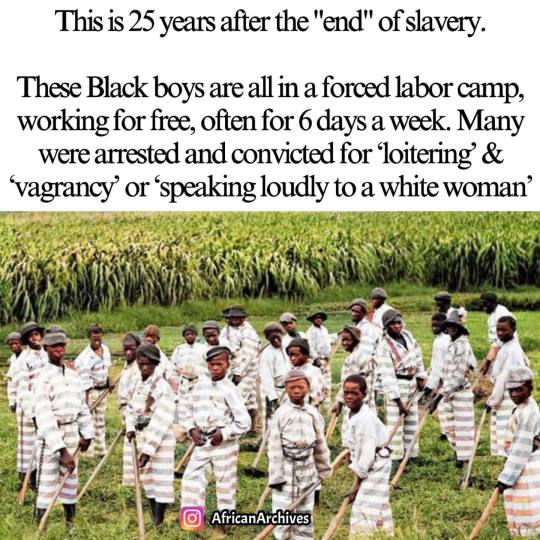
In 1865, enslaved people in Texas were notified by Union Civil War soldiers about the abolition of slavery. This was 2.5 years after the final Emancipation Proclamation which freed all enslaved Black Americans.
But Slavery Continued… In 1866, a year after the amendment was ratified, Alabama, Texas, Louisiana, Arkansas, Georgia, Mississippi, Florida, Tennessee, and South Carolina began to lease out convicts for labor.
This made the business of arresting black people very lucrative, thus hundreds of white men were hired by these states as police officers.
Their primary responsibility being to search out and arrest black peoples who were in violation of ‘Black Codes’
Basically, black codes were a series of laws criminalizing legal activity for black people. Through the enforcement of these laws, they could be imprisoned.
Once arrested, these men, women & children would be leased to plantations or they would be leased to work at coal mines, or railroad companies. The owners of these businesses would pay the state for every prisoner who worked for them; prison labor.
It’s believed that after the passing of the 13th Amendment, more than 800,000 Black people were part of that system of re-enslavement through the prison system.
The 13th Amendment declared that "Neither slavery nor involuntary servitude, except as a punishment for crime whereof the party shall have been duly convicted, shall exist within the United States, or any place subject to their jurisdiction."
Lawmakers used this phrase to make petty offenses crimes. When Blacks were found guilty of committing these crimes, they were imprisoned and then leased out to the same businesses that lost slaves after the passing of the 13th Amendment.
The majority of White Southern farmers and business owners hated the 13th Amendment because it took away slave labor. As a way to appease them, the federal government turned a blind eye when southern states used this clause in the 13th Amendment to establish the Black Codes.
#slavery#emancipation proclamation#black americans#convict leasing#black codes#13th amendment#involuntary servitude#prison labor#re-enslavement#southern states#racial discrimination
542 notes
·
View notes
Text
I liked this video from Jamelle Bouie a lot, and I liked it even more because he delivered it as a floating eyes and mouth over an apple.
I'm going to respond to this comment as an apple because I kind of like doing it. It's fun. And I'm gonna respond to this comment by way of a story.
So, all Americans know about the anti-slavery movement, the abolitionist movement. And the way we're taught about the abolitionist movement or the anti-slavery movement, whatever you want to call it, is kind of that this was inevitable--that obviously slavery is terrible and obviously there are people against it and it was gonna end. We teach it as a thing that was bound to happen. So the Civil War comes and slavery is ended, and it's sort of a very neat story.
But I'm gonna ask you to put yourself in the perspective of an abolitionist or an anti-slavery politician in, say, 1840 or 1848; and if you are one of these people, you have a deep-seated opposition to slavery. If you're an abolitionist, you may have spent the previous 10 or 20 years traveling the country, giving speeches, rallying people, doing everything you can to stir up moral outrage at slavery. If you're a politician, you have been working, doing a grind of politics--somewhat dangerous, because people may not like slavery, but they're not super thrilled about black people either--but you are in legislatures, you are filing petitions, you are building coalitions, you are trying to make whatever headway you can to, if not challenge slavery, then at least challenge some of the racist and anti-black laws that are on the books. Both--whether you're an anti-slavery politician or ablitionist--you do not think in 1848 that slavery is gonna be over in your lifetime. You hope that it might be; but you have no particular expectation that it will be. You are not optimistic about the end of slavery. You may not even be optimistic about the world as it exists, because you look around and you see human bondage and horrible brutality that's been there for hundreds of years, and for all you know will be there when you're long dead.
So the question to ask is, why do these things? Why did these people bother? Why did they continue struggling against slavery, despite not really having any optimism about the end of the institution? And the answer--beyond a deep-seated sense of moral commitment--is that these people didn't need to be optimistic in the ultimate outcome, they just needed to be optimistic in the ability of humans, of people to make change; they needed to be hopeful about human agency. That's what they needed, and that's what they had. And so they did not know how far they would be able to take the baton, but they worked and hoped that when the end of their lives came, they'd be able to hand it off to people who could take it even further than they could.
The abolitionists and the anti-slavery politicians were essentially living out what Antonio Gramsci called the pessimism of the intellect and the optimism of the will. I think the exact quote is, "I'm a pessimist because of my intelligence, but I am an optimist because of my will." What this is is recognizing the reality of the world around you, not looking at the world as if it's any better--or any worse--but any better than it is; but not pinning your hopes for a better world on some sort of linear change, linear move towards something better; but pinning your hopes on one of the true constants of human society, which is the ability of human beings to work their will on the world, and the ability of humans to push and persevere.
So, this is all to say that I am not asking anyone to be optimistic about the world. That's very silly; the world's a very terrible place right now--not the worst it could be, but pretty bad--and I do not contest that. But I do think that people should have a bit of this optimism of the will, and this optimism about human agency, and our ability to build a better world. And this is sort of where my very strong distaste for doomerism comes from, because the sense that it is the worst, and nothing can be better, is just fundamentally incompatible with any kind of optimism of the will, any kind of belief in human agency and belief in our ability to change the world around us. And it's also why you will find me on this account often pushing back against the most negative renderings of what is happening in our society, for example. Not because I think everything is great--I do not--but because I do think that the path towards change requires one to have clear eyes about the situation in which you find yourself; and clear eyes both means recognizing the bad, but it also means recognizing those areas where you can make gains, and where you can find success; and where you can win minor victories.
And you may say, well, what's the point of a minor victory? But I think what the anti-slavery struggle demonstrates, what the civil rights struggle demonstrates, what the labor struggle demonstrates in this country, is that minor victories become fuel for modest victories, become fuel for major victories, and major victories can be the things that fundamentally change the entire field of play. So. Pessimism of the intellect, my friend, optimism of the will.
#i do not think i am very optimistic as a rule#but i'm still much more optimistic than bouie#nonetheless#i share his distaste for doomerism and for similar reasons#you cannot be clear-eyed about the world if you are consumed with pessimism
601 notes
·
View notes
Video
youtube
Think Tipping Is Out of Control? Watch This.
TWO DOLLARS AND THIRTEEN CENTS AN HOUR.
That’s how much millions of American workers are paid under the federal subminimum wage — which was set all the way back in 1991.
While many think tipping for services has gotten out of control, arguing over who deserves a tip and how much they should get distracts from what we should really be angry about: business models that depend on not paying workers a living wage.
It’s bad enough that the federal minimum wage is a measly $7.25 an hour. But employers are allowed to pay tipped workers just $2.13 an hour because supposedly the workers will be able to make up for it in tips.
Saru Jayaraman of One Fair Wage has been advocating to change this absurd and exploitative law. I asked her to share with us FOUR big reasons why we need to get rid of the subminimum wage and pay service workers a full living wage with tips on top.
Number 1: Workers who earn a subminimum wage often end up making less than the minimum wage
43 states currently allow certain workers to be paid a subminimum wage. Employers in these states are legally required to make up the difference if a worker’s combined wage and tips don’t reach the full minimum wage. But over a third of tipped workers report that their bosses regularly fail to do this.
That’s because enforcement of wage laws is lax, and it makes it easier for employers to get away with shortchanging staff.
Number 2: The subminimum wage perpetuates gender discrimination and harassment on the job
More than two-thirds of tipped workers — 70% — in the U.S. are women. And one in six women that work a tipped job are living in poverty — that’s nearly 2.5 times the rate for workers overall.
Since workers earning the subminimum wage are so dependent on tips to make a living, they are put in situations where they have to tolerate inappropriate customer behavior. A staggering 76 percent — that’s more than three-quarters of tipped workers — have reported experiencing sexual harassment on the job. And that only got worse during the pandemic.
Number 3: Tipping is actually a relic of slavery
Tipped workers are disproportionately people of color. And Black service workers in particular consistently earn less, including tips, than their white counterparts for doing the same job.
Look, this inequity of the subminimum wage is tied to America’s history of structural racism.
Following the Civil War, tipping was used as a racist solution by employers who didn’t want to pay formerly enslaved Black workers. So by allowing them to pay their workers just in tips rather than a wage, employers were able to avoid directly paying these workers.
Number 4: Paying workers a living wage plus tips is actually better for business — and our economy.
Corporate lobbyists, particularly for the restaurant industry, warn that paying workers a full minimum wage with tips on top will be devastating to businesses. But research shows these fears are completely overblown.
So far, seven states have replaced their subminimum wage for tipped workers with a higher minimum wage that still allows for tips on top. These seven states are actually faring better than the 43 states with subminimum wages for tipped workers — both in the number of restaurants and number of people employed by restaurants. And take home pay for restaurant servers and bartenders in these states was 24% higher than in states with a wage of just $2.13 an hour.
Workers at restaurants that have scrapped their subminimum wages in favor of higher minimum wages with tips on top are more productive, happier, and less likely to quit their jobs. This alone helps business owners cut employee turnover nearly in half. This is especially important following the pandemic, when restaurants are facing historic staffing shortages because over 1 million workers have left the industry due to low pay.
So not only have higher wage states been able to maintain their industries, but workers are more productive, getting paid more, and less likely to live in poverty.
And when workers have more money, they spend more money — stimulating their local economies in the process.
And for the first time in 30 years, workers are winning on this issue, like in DC and Chicago and a dozen other states.
The bottom line is that ending the subminimum wage for tipped workers is better for workers, it’s better for business, it’s better for our economy — and it’s the right thing to do.
292 notes
·
View notes
Photo


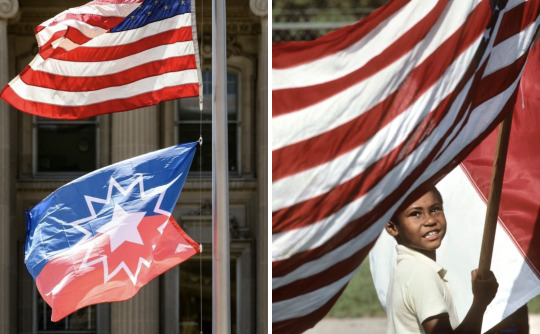


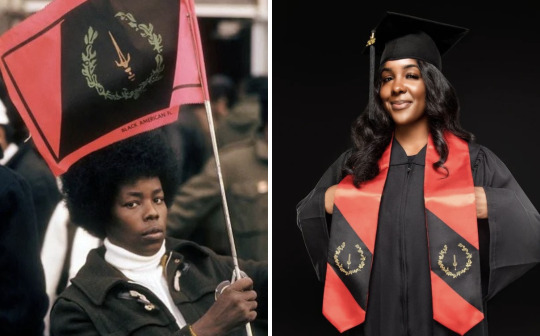
Juneteenth is a Black American holiday.
We call Juneteenth many things: Black Independence Day, Freedom Day, Emancipation Day, Jubilee Day. We celebrate and honor our ancestors.
December 31 is recognized as Watch Night or Freedom’s Eve in Black American churches because it marks the day our enslaved ancestors were awaiting news of their freedom going into 1863. On January 1, 1863, President Lincoln issued the Emancipation Proclamation. But all of the ancestors wouldn’t be freed until June 19, 1865 for those in Galveston, Texas and even January 23, 1866 for those in New Jersey (the last slave state). (It’s also worth noting that our people under the Choctaw and Chickasaw Nations wouldn’t be freed until April 28, 1866 and June 14, 1866 for those under the Cherokee Nation by way of the Treaties.)
Since 1866, Black Americans in Texas have been commemorating the emancipation of our people by way of reading the Emancipation Proclamation and coming together to have parades, free festivities, and later on pageants. Thereafter, it spread to select states as an annual day of commemoration of our people in our homeland.
Here’s a short silent video filmed during the 1925 Juneteenth celebration in Beaumont, Texas:
youtube
(It’s also worth noting that the Mascogos tribe in Coahuila, Mexico celebrate Juneteenth over there as well. Quick history lesson: A total of 305,326 Africans were shipped to the US to be enslaved alongside of American Indians who were already or would become enslaved as prisoners of war, as well as those who stayed behind refusing to leave and walk the Trail of Tears to Oklahoma. In the United States, you were either enslaved under the English territories, the Dutch, the French, the Spanish, or under the Nations of what would called the Five “Civilized” Native American Tribes: Cherokee, Creek (Muscogee), Chickasaw, Choctaw, and Seminoles. Mascogos descend from the Seminoles who escaped slavery during the Seminole Wars, or the Gullah Wars that lasted for more than 100 years if you will, and then settled at El Nacimiento in 1852.)
We largely wave our red, white and blue flags on Juneteenth. These are the only colors that represent Juneteenth. But sometimes you may see others wave our Black American Heritage flag (red, black, and gold).
Juneteenth is a day of respect. It has nothing to do with Africa, diversity, inclusion, immigration, your Pan-African flag, your cashapps, nor your commerce businesses. It is not a day of “what about” isms. It is not a day to tap into your inner colonizer and attempt to wipe out our existence. That is ethnocide and anti-Black American. If you can’t attend a Black American (centered) event that’s filled with education on the day, our music, our food and other centered activities because it’s not centered around yours…that is a you problem. Respect our day for what and whom it stands for in our homeland.
Juneteenth flag creator: “Boston Ben” Haith
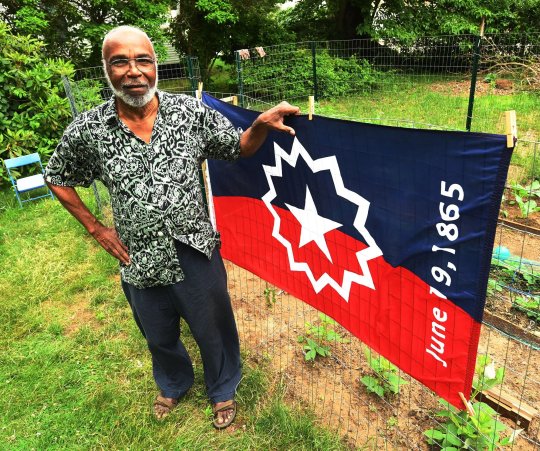
It was created in 1997. The red, white and blue colors represent the American flag. The five-point star represents the Lone State (Texas). The white burst around the star represents a nova, the beginning of a new star. The new beginning for Black Americans.
Black American Heritage Flag creators: Melvin Charles & Gleason T. Jackson

It was created in 1967, our Civil Rights era. The color black represents the ethnic pride for who we are. Red represents the blood shed for freedom, equality, justice and human dignity. Gold fig wreath represents intellect, prosperity, and peace. The sword represents the strength and authority exhibited by a Black culture that made many contributions to the world in mathematics, art, medicine, and physical science, heralding the contributions that Black Americans would make in these and other fields.

SN: While we’re talking about flags, I should note that Grace Wisher, a 13-year-old free Black girl from Baltimore helped stitched the Star Spangled flag, which would inspire the national anthem during her six years of service to Mary Pickersgill. I ain’t even gon hold you. I never looked too far into it, but she prob sewed that whole American flag her damn self. They love lying about history here until you start unearthing them old documents.
In conclusion, Juneteenth is a Black American holiday. Respect us and our ancestors.
#juneteenth#juneteenth flag#black american history#black american culture#ben haith#black american heritage flag#melvin charles#gleason t jackson#grace wisher#american flag#mascogos#juneteenth 2023
1K notes
·
View notes
Text
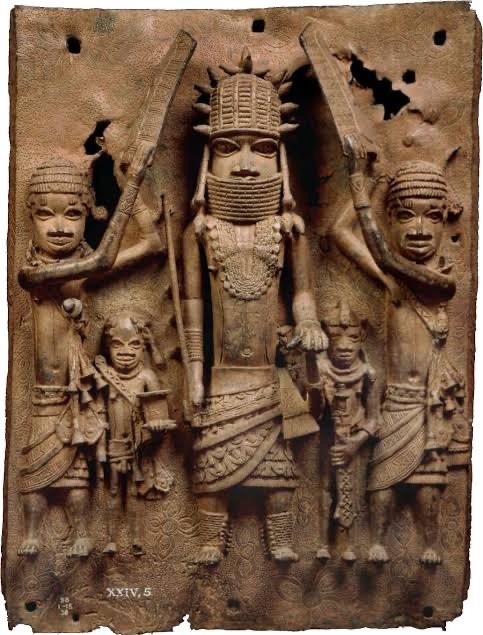
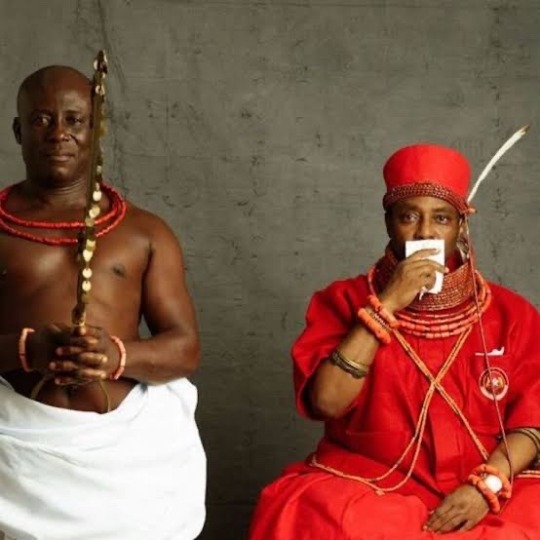
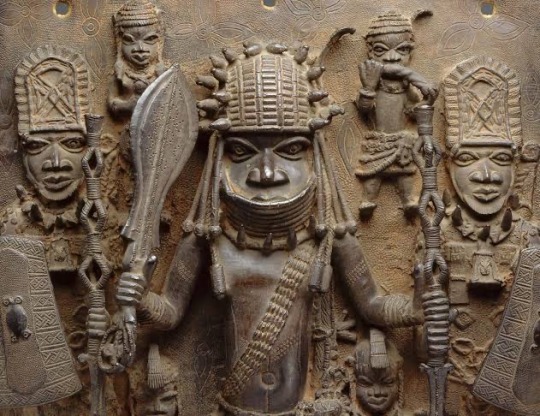
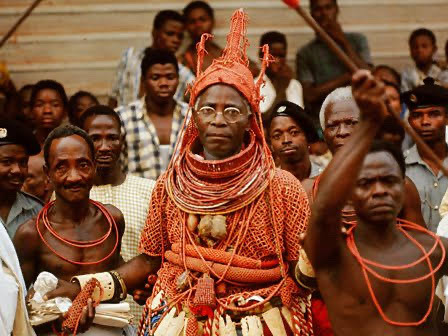
Black history is not slavery
Slavery is not the only history of black Black history goes deeper than slave trade
This is a message for my black brothers and sisters
Today I will be talking about the people of benin
The historical kingdom of Benin was established in the forested region of West Africa in the 1200s C.E. According to history, the Edo people of southern Nigeria founded Benin. They no longer wanted to be ruled by their kings, known as the ogisos. They asked a prince from Ife, an important West African kingdom, to take control. The first oba, or king, in Benin was Eweka. He was the son of the prince from Ife.The kingdom reached its greatest power and size under Oba Ewuare the Great. He expanded the kingdom and improved the capital, present-day Benin City; the city was defined by massive walls. The height of power for Benin’s monarchs began during this period. To honor the powerful obas, the people of Benin participated in many rituals that expressed their devotion and loyalty, including human sacrifices.Artists of the Benin Kingdom were well known for working in many materials, particularly brass, wood, and ivory. They were famous for their bas-relief sculptures, particularly plaques, and life-size head sculptures. The plaques typically portrayed historical events, and the heads were often naturalistic and life size. Artisans also carved many different ivory objects, including masks and, for their European trade partners, salt cellars.The success of Benin was fueled by its lively trade. Tradesmen and artisans from Benin developed relationships with the Portuguese, who sought after the kingdom’s artwork, gold, ivory, and pepper. In the early modern era, Benin was also heavily involved in the West African slave trade. They would capture men, women, and children from rival peoples and sell them into slavery to European and American buyers. This trade provided a significant source of wealth for the kingdom.Benin began to lose power during the 1800s, as royal family members fought for power and control of the throne. Civil wars broke out, dealing a significant blow to both Benin’s administration as well as its economy. In its weakened state, Benin struggled to resist foreign interference in its trading network, particularly by the British. A desire for control over West African trade and territory ultimately led to a British invasion of Benin in 1897. Benin City was burned by the British, who then made the kingdom part of British Nigeria (which became Nigeria after the country gained independence in 1960). After that time, the kingdom no longer played a governing role in West Africa. However, even today, the oba still serves in Benin City as a government advisor.
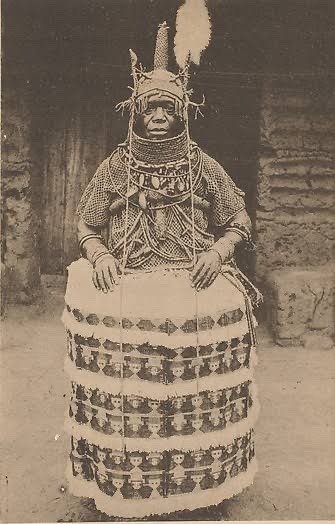

#life#culture#black history#history#blm blacklivesmatter#aesthetic#generations from exile tribe#genshin fanart#sculpture#nigeria#heritage#transgender#traditional media
717 notes
·
View notes
Text
As abhorrently immoral and ridiculously ahistorical as Confederate Apologia is, I thinks it's worth noting that it's tactics and language has a lot in common with like general justifications for US atrocities. The various ways acts are downplayed or decontextualised, treated as not especially serious or as unfortunate accidents rather than a core foundational aspect of the nation. The focus on what abstract ideals were supposedly defended rather than the material realities of the people affected. Bad faith appeals to "progressive" values and talking points like "inclusivity" or "agency". Like it's kinda funny hearing Yank Liberals get all high and mighty about the value of the truth and the need to reckon with the crimes of the past when talking about the US Civil War and then trotting out all manner of excuses in response to subjects like the genocide of indigenous Americans or the Imperialist Interventions of the 20th century come up.
Ultimately the USA and the CSA had a lot more in common then they had different and the conflict between them was largely due to the development of irreconcilable differences between the interests of the Northern Industrial Bourgeoise and Southern Planters, not any sort of moral conflict over "American values" of Liberty and Justice. The fact that that the the post war Planters were able to work out some sort of compromise and take back power, instituting horrific legal and extra-legal repressions intent on effectively forcing African-Americans back into de facto slavery with the full consent and sometimes even support of the Federal government, should make it clear that the war wasn't fought out of any particular love of freedom or belief in the humanity of African peoples.
437 notes
·
View notes
Text
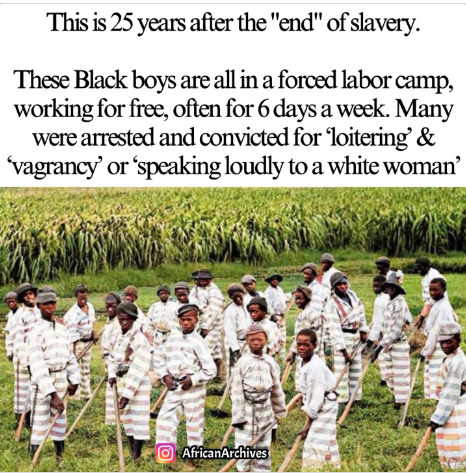
In 1865, enslaved people in Texas were notified by Union Civil War soldiers about the abolition of slavery. This was 2.5 years after the final Emancipation Proclamation which freed all enslaved Black Americans.
But Slavery Continued… In 1866, a year after the amendment was ratified, Alabama, Texas, Louisiana, Arkansas, Georgia, Mississippi, Florida, Tennessee, and South Carolina began to lease out convicts for labor.
This made the business of arresting black people very lucrative, thus hundreds of white men were hired by these states as police officers.
Their primary responsibility being to search out and arrest black peoples who were in violation of ‘Black Codes’
Basically, black codes were a series of laws criminalizing legal activity for black people. Through the enforcement of these laws, they could be imprisoned.
Once arrested, these men, women & children would be leased to plantations or they would be leased to work at coal mines, or railroad companies. The owners of these businesses would pay the state for every prisoner who worked for them; prison labor.
It’s believed that after the passing of the 13th Amendment, more than 800,000 Black people were part of that system of re-enslavement through the prison system.
The 13th Amendment declared that "Neither slavery nor involuntary servitude, except as a punishment for crime whereof the party shall have been duly convicted, shall exist within the United States, or any place subject to their jurisdiction."
Lawmakers used this phrase to make petty offenses crimes. When Blacks were found guilty of committing these crimes, they were imprisoned and then leased out to the same businesses that lost slaves after the passing of the 13th Amendment.
The majority of White Southern farmers and business owners hated the 13th Amendment because it took away slave labor. As a way to appease them, the federal government turned a blind eye when southern states used this clause in the 13th Amendment to establish the Black Codes.
This is more American History that Republicans do not want taught in school.
Republicans cannot rewrite history. They are fools if they think they can.
151 notes
·
View notes
Note
If you were to recommend 1-3 books on the American Civil War, what would you recommend? I’m interested in learning more but it’s considerably outside my historical interests. (I am American, I am just an ancient/medieval history person).
So, what I love about the Civil War era is how perfectly and oddly the very ancient and the very modern intersect. John Brown would have fit perfectly in with the ancient Macabees and Frederick Douglas would fit perfectly in 21st century America and yet they hung out! These are people having very Bendectine monk ideas about God's Will but also God seems to be willing the existence of the modern liberal democracy we all know and enjoy. It's a Black Plague level of death that scrambles people's ideas of the afterlife but includes the first widespread use of photography.
Anyway, this is requiring such extreme discipline on my part but here are three, in three different catagories:
If I had to pick one single Civil War book, I'd go with Eric Foner's The Fiery Trial: Abraham Lincoln and American Slavery. I think Eric Foner, in general, is where one starts and this is my favorite Foner book. I think it really shows you the entanglement of serious theological/philosophical debates and actual bloody battles, which, to me, is the unsettling beauty The Civil War: you literally see the grand philosphical dream of a better world being built out of human skulls and the grandness of the dream being adjusted to be worth that pile of skulls.
For the best Civil War book published within the past year, and one that I think will eventually get to Foner-levels of foundational, I would recommend Kidada E Williams' I Saw Death Coming: A History of Terror and Survival in the War Against Reconstruction. I think this is going to end up being an early classic in what will become a way richer body of work studying the violent end of Reconstruction and making use of the scholarly tools of genocide studies. It's a grim read, but it's so excellent.
For a personal choice, I'd recommend S.C. Gwynne's Hymns of the Republic: The Story of the Final Year of the Civil War. This is, by far, my favorite book about Grant. It's the best at showing that Grant, like Robert Oppenheimer is a terrifying counterpoint to the old fascist line about liberal weakness: liberal democracy, when pressed, unleashes onto its enemies a brutality previously unknown in the world. What I love about Grant, and which this book really captures, is how dismissive he was of the idea that war is about honor or glory or love of country. He knew that war was about killing the other guy in such numbers that he gives up.
205 notes
·
View notes